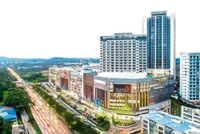THE Johor-Singapore Special Economic Zone (JS-SEZ) could potentially bring Malaysia and Singapore massive gains. Kudos to those behind the scenes.
A joint committee of top politicians from both sides is in place to work things out, clearly signalling that this time around, things will proceed more smoothly.





